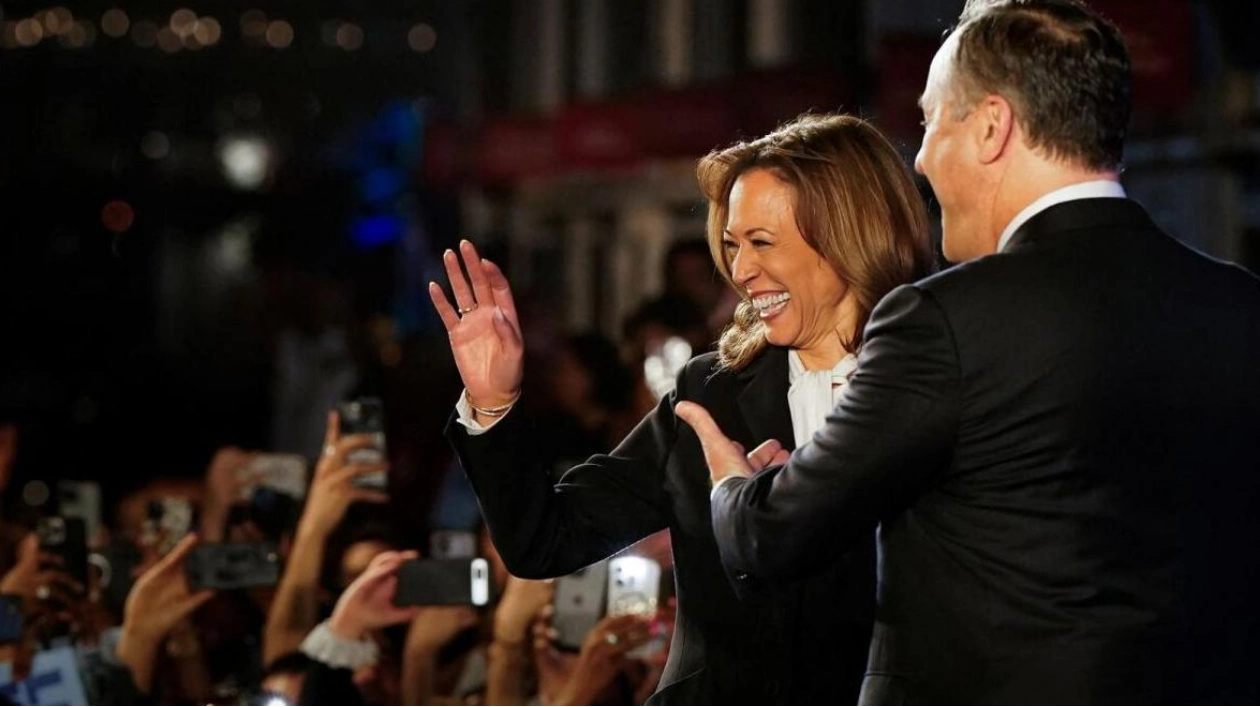Democrat Kamala Harris and Republican Donald Trump faced off on Tuesday in their first and potentially only debate, a showdown that could significantly influence the November 5 election, given the close poll numbers. Here are key insights from the debate:
Harris strategically aimed to provoke Trump, a tactic her campaign had foreshadowed—and it succeeded. She encouraged viewers to attend a Trump rally, where, she claimed, he would make outlandish statements like windmills causing cancer (a claim he has indeed made) and where attendees would leave due to exhaustion and boredom (a phenomenon that has occurred). Trump, who boasts about his large rallies, was visibly agitated.
As a former California prosecutor, Harris's other goal was to highlight Trump's past actions, particularly his attempts to overturn the 2020 election. An hour into the debate, her strategy seemed effective, as Trump was frequently on the defensive. When questioned about the January 6, 2021, Capitol siege, Trump insisted he had no involvement, other than being asked to give a speech. He also falsely claimed victory in the 2020 election.
Harris used Trump's actions to argue for a change in leadership. She emphasized that Trump was rejected by 81 million voters and that the country cannot afford a president who tries to undermine the will of voters in a free and fair election.
Both candidates accused each other of attempting to politicize the Justice Department. Trump claimed the indictments against him were part of a conspiracy by Harris and Biden, while Harris pointed out that Trump has promised to prosecute his enemies if re-elected.
The debate also delved into the racial divide in America. Trump was questioned about his public doubts regarding Harris's heritage. Harris accused Trump of using race to divide Americans throughout his career, citing his family's history of turning away Black renters and his public outcry against the wrongly convicted Central Park Five.
On the economy, Harris detailed her recent economic policies, including substantial tax credits for small startups. Trump focused on tariffs, aiming to protect the American economy from unfair foreign competition. While both candidates made their points, Harris appeared to put Trump on the defensive on an issue where he typically holds an advantage.
The debate also touched on abortion, with Harris criticizing the Supreme Court's 2022 ruling that ended constitutional protection for abortion. Trump defended the ruling, incorrectly stating it was supported by both parties.
The most heated policy discussion revolved around Russia's invasion of Ukraine. Trump refused to explicitly state he wanted Ukraine to win, while Harris argued that Trump's stance would lead to Ukraine's quick and unconditional surrender.






